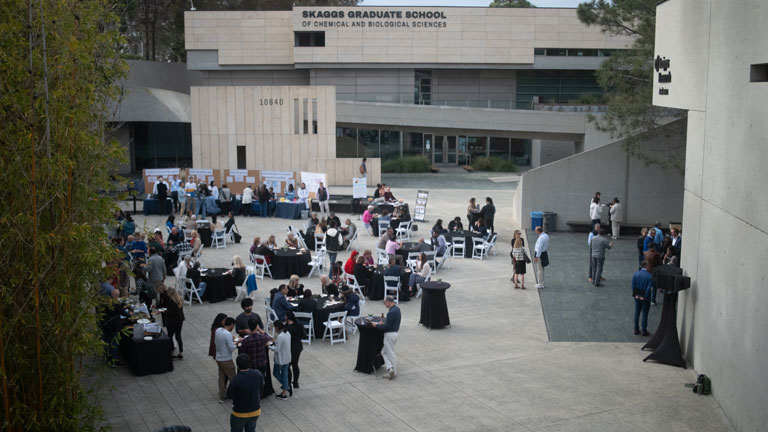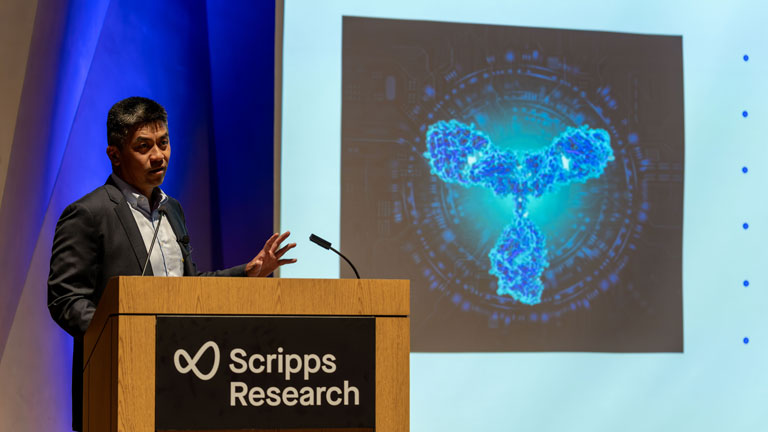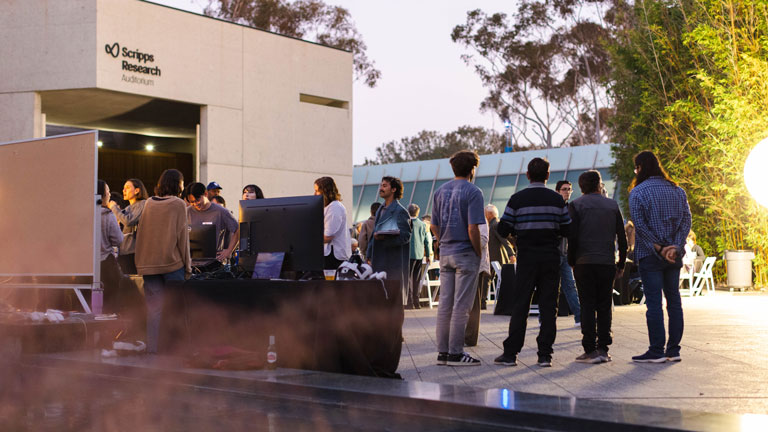Front Row lecture series
Fixing the misfolded proteins that cause dementia and heart failure
Jeffery Kelly, PhD
All proteins have a correct way of “folding” themselves into their three-dimensional structures. When this folding process goes awry, including processes leading to protein misassembly, a number of devastating diseases can result. In this free Front Row lecture, Scripps Research professor Jeffery Kelly shared how he is developing novel therapeutic strategies to target these protein misfolding diseases, which lead to deterioration of the heart and brain. His multi-disciplinary research has already led to the development of an FDA-approved drug available in the pharmacy called tafamidis (Vyndaqel® and Vyndamax®): a medicine that slows the progression of the neurodegenerative disease familial amyloid polyneuropathy and the degenerative heart disease called TTR cardiomyopathy.
Presented: May 15, 2024
Presentation slides
Key takeaways





































































































































































Fixing the misfolded proteins that cause dementia and heart failure
All proteins have a correct way of “folding” themselves into their three-dimensional structures. When this folding process goes awry, including processes leading to protein misassembly, a number of devastating diseases can result. In this free Front Row lecture, Scripps Research professor Jeffery Kelly shared how he is developing novel therapeutic strategies to target these protein misfolding diseases, which lead to deterioration of the heart and brain. His multi-disciplinary research has already led to the development of an FDA-approved drug available in the pharmacy called tafamidis (Vyndaqel® and Vyndamax®): a medicine that slows the progression of the neurodegenerative disease familial amyloid polyneuropathy and the degenerative heart disease called TTR cardiomyopathy.
